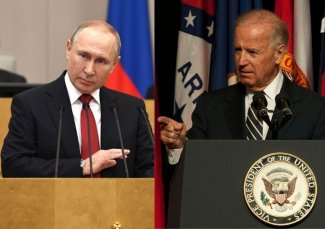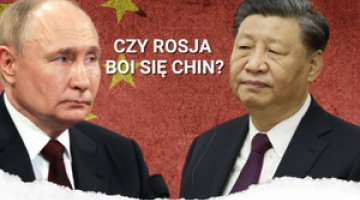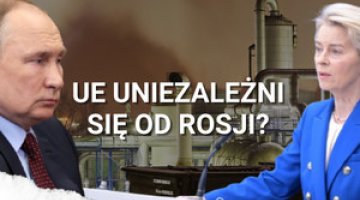Russia’s reaction to President Biden’s assessment of Putin

On 17 March, the US television channel ABC broadcast excerpts from an interview with President Joe Biden, in which inter alia he answered in the affirmative to a question from the host, a well-known American journalist, of whether he considers Russian President Vladimir Putin “a killer”. Biden emphasised that he knew Putin, and that he once told Putin that he “has no soul” (an allusion to President George W. Bush’s statement that he “saw the soul” in Putin’s eyes). Biden further revealed that during a phone conversation on 9 February, he warned the Russian leader that he would take retaliatory measures if the investigation he had commissioned revealed that Russia did try to influence the outcome of the 2020 US presidential election.
Earlier, on 16 March, the National Intelligence Council (NIC) published an unclassified version of their report on this investigation (the classified version was issued on 6 January), which clearly stated not only that Russia had made such attempts, but also that they had been organised by its own state institutions as part of a coordinated and long-term action. The campaign mainly involved spreading false messages about Biden and the elections through people and entities associated with Russia. Its aims were: to discredit Biden’s candidacy, support Donald Trump’s candidacy, undermine confidence in the election process and deepen political divisions within the US. The report clearly attributed the decision to undertake this action to President Putin. At the same time, it established that there had not been any systematic attempts by Russia to penetrate the US electoral system by hacking or interfering with its operation.
Biden’s words provoked a sharp reaction from Moscow, although the official part also contained some attempts to dial down the tension; the president’s spokesman Dmitri Peskov and the Foreign Ministry’s spokeswoman Maria Zakharova repeated that it was necessary to prevent bilateral relations from degrading further. However, numerous senior representatives of the legislative bodies (the chairman of the Duma, the Senate’s deputy speaker, and the chairman of the Duma’s international affairs committees) and officials from the United Russia party (who rarely comment on international affairs) spoke out more sharply. They emphasised that Biden’s statement was a breach of all the diplomatic conventions and customs regarding public communication between heads of state. At the same time, they threatened an unspecified but ‘hard’ form of retaliation and attacked the US president directly, focusing on his advanced age and suggesting that he was not at his full intellectual capacity. On 17 March, Russia’s ambassador to the US, Anatoli Antonov, was summoned to Moscow for consultations (he is leaving on 20 March).
President Putin responded personally on 18 March. His answer contained three elements. First, he wished Biden good health in a condescending and disrespectful fashion (alluding to Biden’s age and alleged health problems). Secondly, he suggested that the US president’s statement primarily revealed more about himself and reflected his own thinking; this statement was accompanied by a longer argument that the political culture of the American ‘political establishment’ carried criminal elements within it because the rise and development of the United States involved the genocide of the indigenous peoples. Putin also referred to the US’s use of nuclear weapons against Japan, stating that from a military point of view it had been completely pointless. He also accused the US of regularly interfering in the internal affairs of other countries and of pursuing a policy of ‘regime change’. In the third part of his speech, Putin challenged Biden to a kind of verbal duel – a public debate that could take place either the next day (i.e. on 19 March) or on Monday 22 March. In response to this proposal, the White House’s spokeswoman Jen Psaki replied that the president was busy and that no such conversation was planned.
Commentary
- Moscow’s harsh reaction to Biden’s statement has several causes. First of all, his words struck a blow at the image of the Russian president which state propaganda has been carefully building up for years. A peculiar cult of personality has developed around Putin, whose authoritarian rule has lasted for over 20 years. For much of that time (and especially since the annexation of Crimea in 2014), the Kremlin has cultivated his image as the ‘saviour of the Fatherland’, a great statesman and a figure of great historical importance. Moreover, due to the authoritarian nature of Putin’s regime, a custom (perhaps even a principle) of not criticising or publicly contradicting him has developed. State propaganda presents him as an important politician on a global scale whom other leaders treat with due respect. In this context, Biden’s statement constituted a kind of ‘lèse-majesté’.
- The reaction from the Russians, including the president himself, is also a consequence of the special importance of their relationship with the US. It is a kind of paradox that the United States has been (and still is) a source of deadly threat to Putin’s elite (both militarily and even more so politically, as a symbol and promoter of democracy), while at the same time it plays an important role in legitimating Russian power, both in the eyes of the people and the elite, not to mention the regime itself. A key element of this legitimation is Russia’s ability to maintain its status as a great power (whose reference point is still the position of the Soviet Union during the Cold War). The United States’ role as its main opponent/partner was the most important manifestation of this status. This was also the root of the specific complex the local elite held during the decline of the Soviet Union – which was also the period when the political socialisation of Putin’s ruling group was taking place. As a result, the direct contacts, summit meetings, and all the signs and signals that Washington sees Moscow as an important or even its primary rival have significantly contributed to the legitimacy of Russian power. Biden’s statement, on the other hand, suggests that the US may be about to start treating Russia as an example of a ‘rogue state’, something which the Kremlin elite would like to avoid.
- The Russians’ specific reaction is a consequence of the above factors, as well as the Kremlin’s concerns about the tightening of US sanctions, which could worsen the already difficult economic and political situation in the country. The elements of the Russian response include the emphasis (in the statements by Putin and the Foreign Ministry spokeswoman) on their readiness to maintain contacts and work on improving relations (while of course not ruling out the unyielding defence of their country’s interests), as well as President Putin’s proposal of a direct debate. This response is primarily aimed at confirming the status of the Russian government – despite its weakening – as the ‘official’ and ‘recognised’ interlocutor of what is still the major global power.





